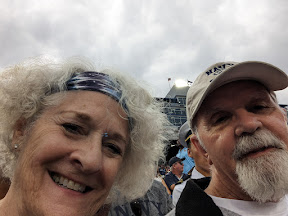I’m not big on labels and categories. I’m not big on having to describe myself as anything other than who I am. Black/white, Republican/Democrat, Christian/Buddhist, male/female. All of this is too confining. As a kid I never colored between the lines or thought inside the box. So, now my books are labeled, pushed into categories, called by something I can’t define.
My agent says my Mad Max series isn’t mystery, because it doesn’t follow mystery norms. To be a mystery, it has to have certain story elements in each phase of the narrative. My publisher uses mystery, romantic suspense and psychological suspense as Amazon categories. There is one point upon which both my agent and publisher agree: I write women’s fiction.
Really? Just what constitutes “women’s fiction?” I have no idea. It has no fixed plot or story elements other than it features a strong woman as the main character. The first time I saw the term I wondered if this wasn’t a catchall for stories that didn’t neatly fit into genre definitions. That may still be the case. When I try to tell readers I write “women’s fiction,” they ask, “Chick lit.” Not hardly.
Being a person who doesn’t like labels, I wondered what “men’s fiction” would be. Would this be darkly psychological stories with social themes? If that’s true, the Mad Max series certainly could qualify, except Mad Max is a grandmother who faces down killers and racists. Or are “men’s fiction” works thrillers and suspense novels? Do these have to be full of blood and gore, gunshots and stabbings, chase scenes and eluding the police? If I drop gunshots out of the extended description, my serial killer book, which is psychological suspense, would be “men’s fiction.” Oh wait, the main character isn’t some macho FBI agent or detective. It’s a female serial killer who hates the anonymity of using a gun to commit her kills. Did I forget to say the story is told in first person from her point of view?
If I try to net this out, I have a strong female character at the lead in this manuscript. She’s every bit as evil as Hannibal Lecter, except she doesn’t eat her victims. She stabs and strangles her victims. She’s as evil as Chelsea Cain’s Gretchen Lowell, except my story is from the point of view of the female killer. There are no chase scenes, yet she eludes police at every step of her career. If my female serial killer, my psychopath who wants people to think she has a conscious, is “women’s fiction,” so be it. Let the games and genre-bending begin.


Love this post! I think categorising writing genres is often subjective, I used to have arguments with myself when tagging book reviews and deciding which elements are included in the story. Now I’ve decided if I think it has elements of whatever genre in it then I’ll include those in my tags and if anyone disagrees, that’s fine but my blog uses my tags 🙂
Good morning, Betsy,
Oddly, I was just reading a thread in one of my Goodreads groups with a comment by a woman whose main character is somewhere on the spectrum of LGBT; the book is a mystery. She is struggling with exactly the preconceived notions about certain “categories” that you have written about here. When she goes to an LGBT category she finds a great deal of pornography. But there seems to be a need among those who categorize to be sure anyone seeing it as “Mystery” knows up front about the hero’s sexual preferences. When I was publishing my book, I realized that my publisher had chosen two categories that I feel sure limited the potential readers. Frankly, if I had seen that category I wouldn’t have been drawn to the book, and if it was shelved in a bookstore or library with that category, I’d have never even seen it.
Unfortunately, we live in a world and in a particular culture (maybe just the human condition) that is polarized and polarizing. We seem to label and then to separate and then to judge among those we label. I have no idea that we can do anything about this except the very bold step, one of us at a time, to do what you have done here–SPEAK UP.
Thanks
What you said, Betsy! We are living a world where labels are constantly being called into question, and rightly so. When I list a book I tend to add just about any tag that applies to the plot, characters, theme(s), style, or message. Labels ought to be inclusive, and are the key to a book’s visibility – so authors and publishers should be thinking in terms of multiple labels, never just one. Indeed, one reader may be looking for “women’s fiction,” while another may be looking for “mystery,” and to delete either of those labels might mean your book would never be found. And then there are, of course, the “psychological thriller” and “personal narrative” seekers – it would be a shame if either of them missed your work as well.
Many bookstores carry works in multiple sections of the shop – which is why at least locally it’s a great idea to follow up and see where your book(s) are landing.
Great reminder that bookstores often shelve books in different areas, particularly Indie bookstores. I’ll have to check to see where mine are shelved.
Reblogged this on theowlladyblog.
Thank you, Owl Lady. So glad this one is worthy of reblogging. Thanks.